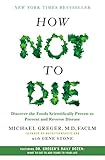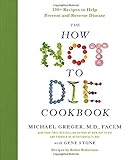Ingredient In Cow’s Milk Primary Causal Trigger of Type 1 Diabetes
By Maria Andrade
An ingredient in cow’s milk has now been identified as a type 1 diabetes trigger in those with genetic risk factors, but researchers say they have been frustrated in efforts to make the findings available to the wider public.
The United States is the world’s largest producer of pasteurized cow milk, but oddly enough it is also one of the world’s smallest consumers. The dairy industry thus has a vested interest in eliminating all raw milk suppliers from the market place to enforce and increase per capita consumption of pasteurized milk which is lagging behind most of the world.
Pasteurized milk is perhaps one of the most nutritionally deficient beverages misappropriately labeled as a “perfect food.” Raw milk enthusiasts have known for a very long time that unpasteurized milk is the ONLY milk worthy of consumption.
[do_widget id=text-16]
Pasteurization destroys enzymes, diminishes vitamin content, denatures fragile milk proteins, destroys vitamins C, B12 and B6, kills beneficial bacteria, promotes pathogens and is associated with allergies, increased tooth decay, colic in infants, growth problems in children, osteoporosis, arthritis, heart disease and cancer.
Seven researchers assessed 71 studies on population epidemiology, animal trials, in vitro laboratory experiments, biochemistry and pharmacology.
Their paper on the findings, originally published in the Journal of Nutrition & Diabetes, said the A1 beta-casein in cow’s milk is a primary causal trigger of the disease.
However, so far there have been no clinical trials on the subject.
Two of the seven researchers, the University of Auckland’s Professor Boyd Swinburn and Lincoln University’s Professor Keith Woodford, explained: “People who are genetically susceptible to developing type 1 diabetes would need to be identified at birth, and half of them randomly allocated to a diet free of A1 beta-casein for many years.”
The Chinese Connection
The paper revealed that the sudden growth in the incidence of type 1 diabetes in China is correlated with the country’s threefold increase in dairy consumption per capita (from 6kg in 1992 to 18kg in 2006, with substantial increases thereafter).
In Shanghai alone, new type 1 diabetes cases among children aged 15 and below increased 14.2% annually between 1997 and 2011. Further south, in Zhejiang, the annual rate of increase in type 1 diabetes cases was 12% among adolescents aged 19 and below.
More worryingly, children below five saw the greatest increase in such cases, at an annual rate of 33.61%. Young children’s dependence on milk consumption could explain the higher prevalence of type 1 diabetes among those below the age of five.
The paper stated: “Accordingly, the ecological epidemiological data, although not proving causation, provide powerful evidence that A1 beta-casein is a causal factor in the pathogenesis of type 1 diabetes.”
Factors and Challenges
The researchers also wrote that though the A1 beta-casein may be a cause of type 1 diabetes in consumers, “there are also likely to be many influencing factors involved in responses to dietary triggers, permissive gut factors and progression towards type 1 diabetes, such as short duration (of) / no breastfeeding, Caesarean delivery rates, and magnitude of exposure to vitamin D.”
They suggested that while it would be possible to change all dairy herds to produce milk without the A1 beta-casein, the process would take 10 years.
The alternative, they said, would be for consumers to opt for goat’s and sheep’s milk instead.
On his WordPress site, Woodford revealed that he and Swinburn had intended to make the paper free for public perusal, but in order to do that, they had to find a sponsor to pay a one-time fee to make the article free of charge.
Commercial Gain
The a2 Milk Company stepped in and paid the US$3,500 required to make the paper free-access. Unlike most cow’s milk brands, the company produces A2 milk free of the A1 beta-casein.
Swinburn and Woodford also wanted online portal The Conversation – an online publisher, sponsored collectively by universities – to publish an abbreviated version of the paper for a wider public audience, but they were turned down.
Best Paleo Cookbook for Beginners (Ad)
The editors told them: “The main reason is the involvement of the a2 Milk Company, for editorial support in this particular paper, but also more directly in funding-related research projects, and the perception that the company would stand to gain commercially.”
Woodford wrote that one of the paper’s authors was a former a2 Milk Company employee, but said none of the authors were paid to write the paper.
He added that despite its financial involvement, the a2 Milk Company did not get to read the paper until it had been published, and therefore, “had no corporate influence over the content or editorial processes”.
This post originally appeared at Prevent Disease
DISCLAIMER: This article is not intended to provide medical advice, diagnosis or treatment.
Get a nifty FREE eBook – Like at Facebook, Twitter and Instagram.





